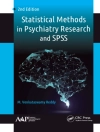Current and comprehensive information concerning the assessment and
treatment of suicidal persons and the prevention of suicidal
behavior
The eighth leading cause of death in the United States and the
second leading cause among U.S. teens, suicide is unique in being
self-inflicted and is, as such, often preventable. By assessing the
risk of suicide accurately, providing effective treatment according
to this risk, and implementing strategies against suicidal urges,
mental health professionals can successfully guide their clients
away from this senseless taking of life.
Assessment, Treatment, and Prevention of Suicidal
Behavior provides the most current and comprehensive source of
information, guidelines, and case studies for working with clients
at risk of suicide. It offers clinicians, counselors, and other
mental health professionals a practical toolbox on three main areas
of interest:
* Screening and Assessment covers empirically based assessment
techniques and how they can define dimensions of vulnerability and
measure the risk of self-destructive behavior. Authors discuss
research on the use of each screening instrument, guidelines and
suggestions for using the instrument in practice, and a case study
illustrating its application.
* Intervention and Treatment compares several different
approaches for structuring psychotherapy with suicidal clients.
Each author covers a psychotherapy system, its application to
suicidal clients, and a case study of its real-world use.
* Suicide and Violence explores the relationship between suicidal
individuals and violence, covering suicide in specific contexts
such as school violence, police confrontations, and terrorist
violence. This section also includes a discussion of the increased
risk of suicide in our more insecure and violent world, as well as
how topromote coping styles for these new anxieties.
While addressed mainly to psychologists, social workers, and other
mental health professionals for use in serving their clients, as
well as students of psychology, Assessment, Treatment, and
Prevention of Suicidal Behavior is also an accessible and
valuable resource for educators, school counselors, and others in
related fields.
Tabela de Conteúdo
Foreword (Norman L. Farberow).
About the Editors.
Contributors.
1. Introduction (Robert I. Yufit and David Lester).
PART ONE: Screening and Assessment.
2. Clinical Use of Suicide Assessment Scales: Enhancing
Reliability and Validity through the Therapeutic Relationship
(James R. Rogers and Kimberly M. Oney).
3. Assessment of Suicide: Beck’s Scales for Assessing Mood
and Suicidality (Mark A. Reinecke and Rogina L.
Franklin-Scott).
4. Minnesota Multiphasic Personality Inventories (MMPI /MMPI-2,
MMPI-A) and Suicide (Alan F. Friedman, Robert P. Archer, and
Richard W. Handel).
5. Rorschach Contributions to Assessment of Suicide Risk (Ronald
J. Ganellen).
6. Assessing the Vital Balance in Evaluating Suicidal Potential
(Robert I. Yufit).
PART TWO: Intervention and Treatment of Suicidality.
7. The Classic Systems of Psychotherapy and Suicidal Behavior
(David Lester).
8. Crisis Intervention in the Context of Outpatient Treatment of
Suicidal Patients (John Kalafat and Maureen M. Underwood).
9. No-Suicide Contracts (Lillian M. Range).
10. Cognitive-Behavioral Therapy with Suicidal Patients (Mark A.
Reinecke and Elizabeth R. Didie).
11. Voice Therapy: A Treatment for Depression and Suicide (Lisa
Firestone).
12. Dialectical Behavior Therapy (David Lester).
13. The Widening Scope of Family Therapy for the Elderly (Joseph
Richman).
14. Group Therapy and Suicide (Robert R. Fournier).
PART THREE: Special Issues.
15. Easing the Legacy of Suicide (David Lester).
16. Coping with Suicide in the Schools: The Art and the Research
(Antoon A. Leenaars, David Lester, and Susanne Wenckstern).
17. Helping College Students Cope with Suicidal Impulses (Morton
M. Silverman).
18. Suicide Terrorism (Ariel Merari).
Author Index.
Subject Index.
Sobre o autor
ROBERT I. YUFIT, Ph D, ABPP, is an associate professor at the
Feinberg School of Medicine at Northwestern University in Chicago
and is also in independent clinical practice where he has focused
primarily on the assessment and treatment of suicidal persons for
the past three decades. He is a past president of the American
Association of Suicidology, and is currently Associate Editor of
their journal, Suicide and Life-Threatening Behavior. He has
published widely on the assessment of suicide potential.
DAVID LESTER, Ph D, is Professor of Psychology at the Richard
Stockton College of New Jersey. He has written extensively on both
suicide and murder. He was director of research and evaluation at
the Suicide Prevention and Crisis Service in Buffalo, New York, and
is a past president of the International Association for Suicide
Prevention.












